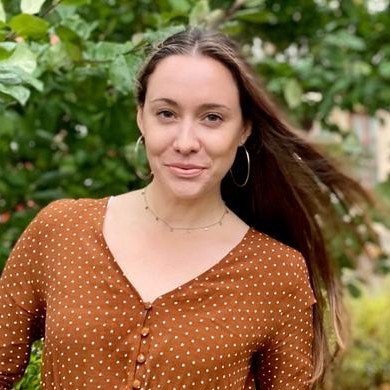 On March 17th, we were joined, via Zoom from Uppsala, Sweden, by Jordan Matthews, who is attending Uppsala University as a Rotary Peace Fellow, sponsored by District 5440. As a Peace Fellow, she is working on a MSSc in Peace and Conflict Studies at Uppsala University. On one of her first slides, she pointed out that the Rotary Peace Fellowship is An Investment in Peace.
On March 17th, we were joined, via Zoom from Uppsala, Sweden, by Jordan Matthews, who is attending Uppsala University as a Rotary Peace Fellow, sponsored by District 5440. As a Peace Fellow, she is working on a MSSc in Peace and Conflict Studies at Uppsala University. On one of her first slides, she pointed out that the Rotary Peace Fellowship is An Investment in Peace. Jordan's road to the Peace Fellowship began while she was a Peace Corps volunteer in the Dominican Republic. Her work with young women there led to an interest in gender equality, which she feels is essential to building and sustaining societies.
Before talking about her experiences as a Peace Fellow, she pointed out that the Rotary Foundation funds up to 130 Peace Fellows per year, 50 for master’s degrees and 80 for certificate studies, at premier universities. Admission to the program is through a rigorous application process. The program is administered through seven Rotary Peace Centers across the world and the program emphasizes Peace and Development. The emphasis of the program includes academic training, applied field experience, networking, a series of workshops, and a final seminar.
The Rotary Peace Center at Uppsala University is in the Department of Peace and Conflict Research and provides a two-year master’s program in Peace and Conflict in association with the Uppsala Conflict Data Program. The focus of the program is on training its students in rigorous research practices and methods and concludes with a final thesis.
Why Uppsala? At the national level, she was attracted to the Swedish feminist foreign policy. For the university itself, she found the program’s emphasis on gender, its focus on methods, and the ability to include an internship semester as important features. She particularly referred to classes on “Gender, War, and Peace” and “International Conflict Resolution”.
After introducing several of her fellow fellows (a group diverse in gender and national origin), she talked about her Applied Field Experience (AFE), which is resulting in a review paper co-written with her advisor. The AFE is normally designed by the student, and her initial idea was to focus on mediation training. However, she ultimately changed to a study of the gender dimension of military effectiveness, a study that will extend into an internship in the Fall. Although there is thought that more gender-equal societies are more peaceful, the early indications of the study are that statistical regression shows a positive correlation between gender equality in the military and greater effectiveness on the battlefield.